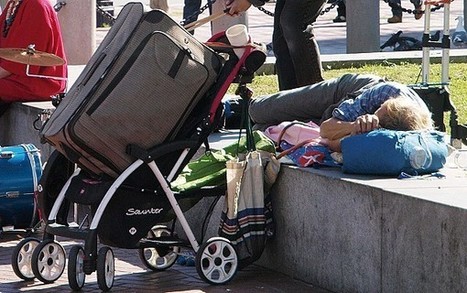
by Soraya Azari, MD
While recently working in the hospital I was often asked by my interns and medical students: “so where can this person go?” An example: a 53 year old homeless man, wheelchair-bound from prior injuries, who had his wheelchair stolen during an assault, which led to pneumonia and hospitalization. He quickly improved with intravenous antibiotics, was medically stable, and no longer met criteria for inpatient hospitalization. So then the question is where should he go?
While recently working in the hospital I was often asked by my interns and medical students: “so where can this person go?” An example: a 53 year old homeless man, wheelchair-bound from prior injuries, who had his wheelchair stolen during an assault, which led to pneumonia and hospitalization. He quickly improved with intravenous antibiotics, was medically stable, and no longer met criteria for inpatient hospitalization. So then the question is where should he go?
In San Francisco, we are very fortunate to have a resource called Medical Respite, (http://hospital-sfgh.medicine.ucsf.edu/services/respite.html) which is a place that homeless individuals can stay after a hospitalization in order to rest and recuperate. In contrast to a shelter, a person does not stand in line for a spot, or have to leave first thing in the morning and stay out all day. They provide food, a place to bathe, and assistance with medications and transportation to medical appointments. In other words, they sort of function like an assisted living facility.
For those that do not know, assisted living facilities (ALFs) are housing facilities for individuals that need help with everyday activities such as meals, medication management, bathing, dressing, or transportation (www.alfa.org). ALFs are an alternative to nursing homes, intended for those with less functional impairment. The average cost per month is greater than $3000 (http://www.alfa.org/alfa/Assessing_Cost.asp), and this is not a designated Medicare or Medicaid benefit.
Many of the patients on my medical team need an assisted living facility, but there are virtually none available to poor San Franciscans. Instead, we have Medical Respite, which allows short-term stays for recently hospitalized, frail adults such as my patient. The problem is that they have about 30 beds. The wait for one of these beds is currently over a week. And as the supervising doctor in the hospital, I have to decide whether to keep someone in the hospital who is no longer acutely ill – which deprives other, sicker patients of a bed and is extremely costly – or wait for the bed to become available. This is not pleasant. And the answer is that sometimes I keep a person in the hospital, and sometimes I have to discharge him or her to the street.
This is a complicated problem with no easy solution, but my request of the San Francisco Department of Public Health and City Supervisors is to strongly consider the expansion of Medical Respite in San Francisco. This is an essential resource for a growing population of frail, disabled homeless individuals in San Francisco. If this does not happen, there will just be more admissions to hospitals and more street homeless wielding their walkers and wheelchairs, precariously trying to get by.

Thanks for all the great ideas! I was sitting at my computer today and could not for the life of me think of something to write about. This was really helpful.Love all the tips you’ve listed. Very helpful. Thank you!
ReplyDeleteSlim 24 Pro | Fair look | Zero Addiction | Air sofa | Air Bra | Step Up Height Increaser
I have spent a good time here at your blog reading. Must Keep the ball rolling buddies! Paradise In-Home Care
ReplyDelete